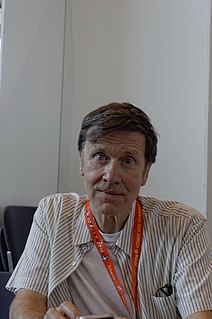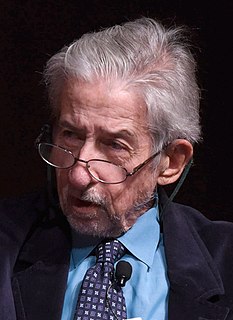A Quote by Peter Milligan
The first 'Bad Company' was a kind of reaction to the Vietnam war - or at least a reaction to how Vietnam had entered the cultural life through films and books.
Related Quotes
Most of us who were opposed to the war, especially in the early '60's - the war we were opposed to was the war on South Vietnam which destroyed South Vietnam's rural society. The South was devastated. But now anyone who opposed this atrocity is regarded as having defended North Vietnam. And that's part of the effort to present the war as if it were a war between South Vietnam and North Vietnam with the United States helping the South. Of course it's fabrication. But it's "official truth" now.
Neoconservatives and the Pentagon have good reason to fear the return of the Vietnam Syndrome. The label intentionally suggests a disease, a weakening of the martial will, but the syndrome was actually a healthy American reaction to false White House promises of victory, the propping up of corrupt regimes, crony contracting and cover-ups of civilian casualties during the Vietnam War that are echoed today in the news from Baghdad.
With 450,000 U. S. troops now in Vietnam, it is time that Congress decided whether or not to declare a state of war exists with North Vietnam. Previous congressional resolutions of support provide only limited authority. Although Congress may decide that the previously approved resolution on Vietnam given President Johnson is sufficient, the issue of a declaration of war should at least be put before the Congress for decision.
I think that the war on drugs is domestic Vietnam. And didn't we learn from Vietnam that, at a certain point in the war, we should stop and rethink our strategy, ask ``Why are we here, what are we doing, what's succeeded, what's failed?'' And we ought to do that with the domestic Vietnam, which is the war on drugs.
Every book that comes out, every article that comes out, talks about how - while it may have been a "mistake" or an "unwise effort" - the United States was defending South Vietnam from North Vietnamese aggression. And they portray those who opposed the war as apologists for North Vietnam. That's standard to say. The purpose is obvious: to obscure the fact that the United States did attack South Vietnam and the major war was fought against South Vietnam.
The leading, the most respected Vietnam historian, military historian Bernard Fall -he was a hawk incidentally, but he cared for the Vietnamese - he said it wasn't clear to him whether Vietnam could survive as a historical and cultural entity under the most massive attack that any region that size had ever suffered. He was talking about South Vietnam, incidentally.
I was arrested 1965. I had come back from the merchant marines, got into conversations about the war. I had never heard of Vietnam until I was in the merchant marines in constitution square in Athens, and I picked up the New York Herald or the International Herald Tribune and there was my first introduction of the word Vietnam.



































